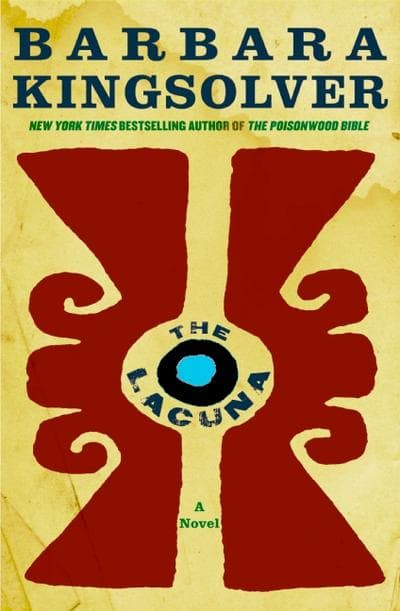Advertisement
Barbara Kingsolver: I'm Fascinated By Moments That Turn History On Its Head
"Today the lacuna appeared a little below the surface. It's near the center of the cliff, below a knob where a hummock of grass grows out. It should be easy to find again, but best to look early, with sun just up and the tide low…"
In her first novel in nine years, author Barbara Kingsolver has written an epic story around the idea of missing pieces — missing pieces of history and of lives.
"I'm fascinated with character — both individual, personal character and in this case national character," Kingsolver told Here & Now host Robin Young in an interview Wednesday. "And in those moments of history that turn everything on its head. And I've long had a hunch that this moment of time — between World War II and 1950 — was pivotal to the American identity."
In "The Lacuna," which means gap or missing part, the main character, Harrison Shepherd, fills in some of those holes as a witness to history — from the 1932 bonus riots, during which the U.S. Army attacked homeless veterans demanding their benefits, to the Communist movement in Mexico, back to Asheville, N.C., and the paranoia of McCarthyism.

The story of a boy who goes back and forth between his father, a Washington bureaucrat, and his mother, a faded Mexican dancer, "The Lacuna" is shaped by historic moments. An American boy in Mexico, Shepherd is always trying to fill his own personal lacuna.
As a child, he was a cook and plaster mixer for the politically active artist Diego Rivera and his wife Frida Kahlo. It's in their house that he watches the murder of exiled communist leader Leon Trotsky.
"This kid who grows up in these very sort of sad and strange circumstances in southern Mexico is the vehicle to get you into a lot of fascinating places," Kingsolver says.
Responding to criticism in The Los Angeles Times that Trotsky comes off as a "social-democratic Santa Claus," Kingsolver said the book directly quotes the man. "Trotsky himself is a lacuna," she said. "He has been erased from history and many of the events in this novel have also been removed from memory."
In trying to get into a little boy's head, Kingsolver said, she looked for lost pieces of history in books, magazines and in her own memory. "I kept finding pieces of history that weren't absolutely news to me," she said. "That worked perfectly with my plot."
Food has a strong presence in the novel, which Kingsolver attributes to her personal connection to the topic. Her last book, "Animal Vegetable Miracle: A Year Of Food Life," was about her family's experience eating only locally grown food for a year. She takes Harrison on a cooking journey in Mexico and even includes recipes in the book, such as directions to making empanadas dolces (sweet empanadas).
"Food speaks directly through the back of our brains to our heart, I think," Kingsolver said. "It's olfactory — you smell it; you taste it. The task of the novelist is to bring the reader all of the details that make the place real. It's easy to concentrate on the visual, but the best way to relay experience is through all of the senses."
Listen to Robin Young's full interview with Barbara Kingsolver, Nov. 18, on Here & Now.
This program aired on November 19, 2009. The audio for this program is not available.